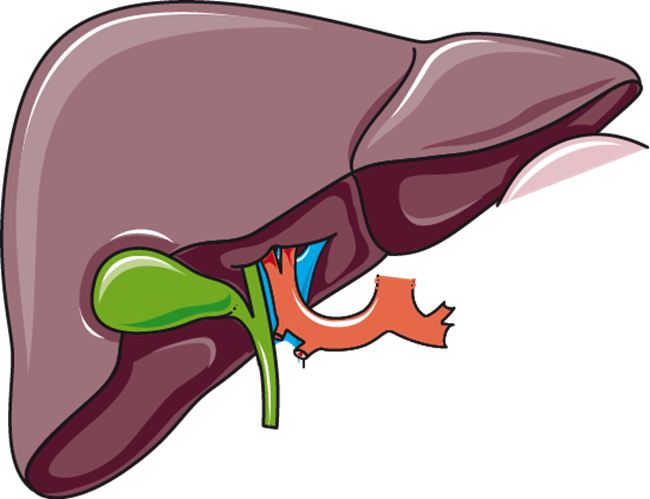This time of year, the holiday season, can be a time of overindulgence for many of us. And how can we talk about overindulgence without taking a look at the liver? To say the liver is important is an understatement. It is the body’s largest gland and while estimates of the number of functions of the liver vary, many textbooks generally cite around 500. Nearly everything we ingest, from drugs and alcohol to vitamins and nutrients, is metabolized by the liver. The vital role it plays in the functioning of our bodies makes the testimony from the 1970 Nelson Pill Hearings about the effects of oral contraceptives on the liver that much scarier.
Research Presented at the Nelson Pill Hearings
Dr. Victor Wynn was one of the first physicians to testify about the effects of hormonal birth control on the liver.
On page 6341 he states, “if you will take cells out of the liver and examine them under the electromicroscope of women taking oral contraceptive medication, you will find some extraordinary changes.” Of these and other changes caused by the pill, he says: “When I say these changes occur, I mean they occur in everybody, more in some than in others, but no person entirely escapes from the metabolic influence of these compounds. It is merely that some manifest the changes more obviously than others.”
Later to testify was Dr. William Spellacy who was specifically called upon to speak about the metabolic effects on the liver. His testimony about the liver begins, “The biochemical effects of the sex hormones on the liver are legion.” Below is a list of liver functions that, based on the research presented in Dr. Spellacy’s testimony, are altered or impaired (NPH 6427):
- Lowering of total plasma protein level
- Decrease in the albumin and gamma globulin and increases in other fractions
- Tests may be abnormal in women on oral contraceptives without disease being present
- Estrogen (including that in oral contraceptives) interferes with liver function and varies with dosage
- Some women taking oral contraceptives have abnormally high blood bilirubin levels
- 1/3 of women who have jaundice on oral contraceptives will get it when pregnant
- Discontinuation of oral contraceptives “cures” jaundice
He summed up his thoughts on the liver damage caused by hormonal birth control:
“The immediate effects include the alteration of several of the laboratory tests used in medical diagnoses. Aggravation of existing liver disease, if present, to the point where jaundice may be seen has also been shown. There is no answer to the query of will permanent liver damage result from the use of the oral contraceptives.”
The honorary Chairman of the Population Crisis Committee, a “pro-pill” organization focused on population control added his two cents about the effects of oral contraceptives on the women using them. “While metabolic alterations affecting the liver and other organs do result from use of the pill, there is no evidence at this time that they pose serious hazards to health;” General William Draper, Page 6705.
Of course, we shouldn’t assume that just because a medication causes a “legion” of biochemical effects on the livers of otherwise healthy women that there will be any lasting problems, right?
Research Since the Hearings
“Women more commonly present with acute liver failure, autoimmune hepatitis, benign liver lesions, primary biliary cirrhosis, and toxin-mediated hepatotoxicity,” according to a 2013 article in Gastroenterology and Hepatology.
Like I mentioned in my piece about rheumatoid arthritis, whenever a health issue affects women disproportionately, there is often a connection with hormonal birth control. While this study doesn’t specifically mention that, it does call for further studies assess the role of sex hormones and other behaviors on liver problems in women.
These connections were well-documented at the 1970 Nelson Pill Hearings but the subsequent research gets more confusing.
Timeline of Liver Research
1980: Lancet published an article showing the connection between malignant liver tumors and women using oral contraceptives.
1989: The British Journal of Cancer found “confirmation in this population of the association between oral contraceptives and hepatocellular carcinoma” and “the relative risk was significantly elevated in long-term users [of oral contraceptives].”
1992: “This study, the largest to date, adds to the number of investigations demonstrating an increased risk of primary liver cancer with use, particularly long-term use, of oral contraceptives.”
2006: “Long-term use of oral contraceptives (OCs) and anabolic androgenic steroids (AASs) can induce both benign (hemangioma, adenoma, and focal nodular hyperplasia [FNH]) and malignant (hepatocellular carcinoma [HCC]) hepatocellular tumors.”
Yet a 2015 meta-analysis concluded that “oral contraceptive use was not positively associated with the risk of liver cancer.” However, the analysis also conceded that “a linear relationship between oral contraceptives use and liver cancer risk was found.” And the authors noted the need for further research into specific formulations of oral contraceptives and the duration of usage.
It makes you wonder how we went from pretty convincing and highly damning connections between oral contraceptives and liver cancer to no positive association at all. Did all the scientists from the 1960s to 2006 get it wrong? Or is something else going on here?
What About the Gallbladder?
Perhaps we can look at the liver’s little buddy, the gallbladder, for some more information. The two are intimately connected in that the liver is constantly making bile and sending it to the gallbladder for storage and dispensation. Like problems with the liver, women are more likely to develop gallstones than men. According to the National Institute of Diabetes and Digestive and Kidney Diseases, “Extra estrogen can increase cholesterol levels in bile and decrease gallbladder contractions, which may cause gallstones to form. Women may have extra estrogen due to pregnancy, hormone replacement therapy, or birth control pills.”
This was proven shortly after the Nelson Pill Hearings. According to the revised edition of The Doctors’ Case Against The Pill by Barbara Seaman:
“The Pill also has serious adverse effects on the gallbladder, and women who take the Pill face an increased risk of someday facing surgery for gallstones. Pill use causes higher levels of cholesterol saturation in the bile, according to a study reported in the New England Journal of Medicine in 1976. This high level of fate in the bile is considered ‘an early chemical stage of gallstone disease,” according to Dr. Donald Small of the Boston University School of Medicine… The risk of gallbladder disease rises with the length of time a woman has been on the Pill… In some studies, Pill users are two and a half times as likely to suffer from gallstones as comparable women.”
A meta-analysis conducted in 1993 found “Oral contraceptive use is associated with a slightly and transiently increased rate of gallbladder disease” and “Considering…the rapidly changing formulas of oral contraceptives, the authors suggest that the safety of new oral contraceptives be evaluated by studying bile saturation and biliary function rather than by waiting for gallbladder disease to develop.”
A much more recent study (2011) found that there was even more risk of gallbladder disease with the newer formulations:
- Long-term use of an oral contraceptive is associated with an increased risk of gallbladder disease compared with no use
- There was a small, statistically significant increase in the risk of gallbladder disease associated with the use of desogestrel, drospirenone and norethindrone compared with levonorgestrel
- Both estrogen and progesterone have been shown to increase the risk of gallstones
- Estrogen has been shown to increase cholesterol production in the liver, with excess amounts precipitating in bile and leading to the formation of gallstones
- Progesterone has been shown to decrease gall-bladder motility, which impedes bile flow and leads to gallstone formation
The gallbladder shows us that these hormones are damaging the body.
What Now?
So what do you do when you have a gallbladder that’s not functioning properly? The current practice is to take it out! Of course, removing the gallbladder is not the quick fix many think it is and often leads to other health complications like irritable bowel syndrome, acid reflux, and Sphincter of Oddi Dysfunction.
What about when your liver isn’t functioning properly? That’s not as simple. You can’t just take a liver out. How can the gallbladder, an organ so fundamentally connected to the liver, experience drastic and dangerous changes from hormonal birth control but the liver is supposedly unaffected? Have we researched ourselves out of that problem by declaring that it isn’t a problem? Has there been some spin-doctoring going on when it comes to the liver?
As Dr. Wynn said at the hearings, “There are more than 50 ways in which the metabolic functions of the body are modified, and to say therefore that normal physiological function has been demonstrated in the years of oral contraception is to overlook a very large amount of information.”
I think a very large amount of information has indeed been overlooked.
We Need Your Help
More people than ever are reading Hormones Matter, a testament to the need for independent voices in health and medicine. We are not funded and accept limited advertising. Unlike many health sites, we don’t force you to purchase a subscription. We believe health information should be open to all. If you read Hormones Matter, like it, please help support it. Contribute now.
Yes, I would like to support Hormones Matter.
Laboratoires Servier, CC BY-SA 3.0, via Wikimedia Commons
This article was first published December 15, 2016.







